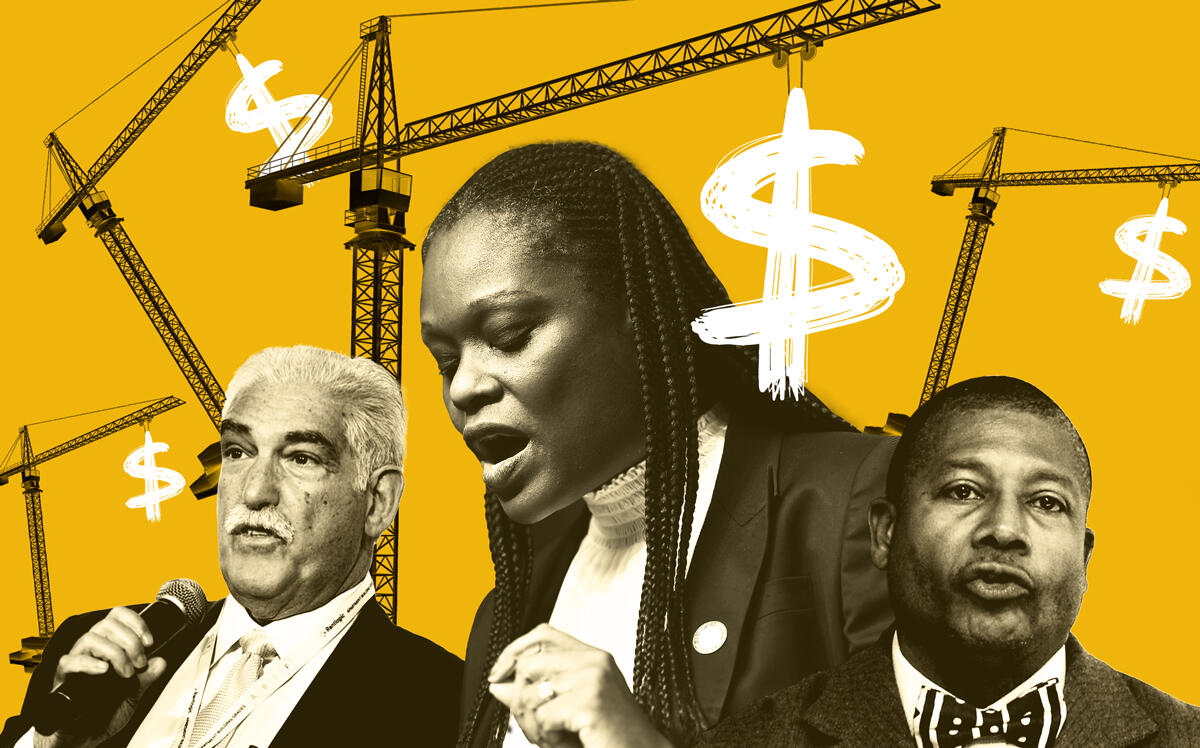 Construction group fights higher fines for worker deaths
Construction group fights higher fines for worker deaths
Trending
Hochul signs bill to raise fines for construction companies
Industry wins some concessions to Carlos’ Law, which it had defeated in past years

Construction companies found criminally responsible for the death or injury of a worker will now face steeper fines, though not as high as previously planned.
Gov. Kathy Hochul on Friday signed Carlos’ Law, a measure inspired by the death of 22-year-old construction worker Carlos Moncayo, who was crushed in a 2015 trench collapse near the High Line.
The bill raises the fines for convictions related to construction deaths and injuries to as much as $500,000.
The measure was introduced in 2017 after Harco Construction, the company overseeing the site where Moncayo was killed, was convicted of manslaughter and ordered to pay the maximum penalty — just $10,000.
A previous version of the bill started penalties at $500,000 for felonies and $300,00 for misdemeanors. Capping the fine at $500,000 was a win for the Building Trades Employers’ Association, which argued that the fines would drive up costs for contractors, who are already paying exorbitant insurance rates.
BTEA was seeking additional changes, and its president, Louis Coletti, said the approved measure does not pare back the original bill enough. Other industry groups, including the Business Council of New York State, also opposed it, arguing that it would put small contractors out of business, hurting workers.
Read more
 Construction group fights higher fines for worker deaths
Construction group fights higher fines for worker deaths
 REBNY calls for larger fines. Wait, what?
REBNY calls for larger fines. Wait, what?
 Harco Construction found guilty of manslaughter in worker’s death
Harco Construction found guilty of manslaughter in worker’s death
Earlier this year, the Real Estate Board of New York approached the Mason Tenders’ District Council, a laborers’ union, with concerns about certain aspects of the bill. The two groups successfully lobbied to remove language that targeted supervisors and created new crimes with mandatory prison time.
For REBNY, winning concessions for industry was a better alternative than seeing the original passed over its objections. For labor, the concessions were sacrifices unions were willing to make to ensure the measure became law after falling short several years in a row.
“This bill, which would allow for a penalty up to 50 times more than Carlos’ employer was hit with, will first and foremost be a deterrent,” a Laborers leader, Mike Hellstrom, said in a statement. “The legislature and Gov. Hochul recognize that the virtual epidemic of dead construction workers has to end. In this piece of legislation, we take a great leap forward towards that goal.”
Brooklyn Assembly member Rodneyse Bichotte Hermelyn, one of the bill’s sponsors, noted that the measure “expanded the definition of ‘employee’ to include subcontractors, day laborers and other workers to expand these sweeping protections.”
“After several iterations, I am content with the bill ultimately delivered to Gov. Kathy Hochul,” she said in a statement. “Although I can’t say I’m pleased that the threshold for punishment was lowered, it still is high enough to be a deterrent and it gives judges room for discretion.”




